CARD CATELOG for all Publications, check here first.
Also read the ABOUT PAGE; This is how I organize the longer books that I have cut into bite-sized chapters. Everything will be here grouped in a logical sequence.
[NOTE: I just put 7 of these categories up on the navigation bar. I’ll keep that up to date with new links. Now more things are in the open, even if you don’t come into this index. Still, there are many articles and comments that are not in those navigation categories, but only here. The outside bar is not wide enough to contain all, thanks.]
Our major translated books over the years are from Lev Nikolaevich Gumilev. If you’ve been here before, you know about him. He is a Soviet geographical historian, with theories on ethnogenesis. He is not translated much into English, so westerners don’t know of him. He has a grand following in Russia. He never wrote about geopolitics, so he did not comment on the Soviet Union. Here are links to his major books on this site: (When you get to the link, open the INDEX file. Inside are all the chapter links.)
Ancient Rus and the Great Steppe
Ethnogenesis and the Biosphere
Yevtushenko book about Gumilev
The End and the Beginning Again
Rus to Russia, (with all graphics)
Finding Khazaria, Methodology
The Opening of Khazaria, Historical
Condensed excerpts of Asian Histories
Chinese Main INDEX
_______________
Below here are many of the current issues, other than Gumilev history, that we are delving into:
INDEX: Contemporary Thought on foreign and domestic Russian Policy.
How can we know people’s true objectives on the international scene? It should be obvious that true goals are held in secret, not to allow premature opposition. The heads of state have a role to propagate a national narrative. We are the “good guys” and our policies are for the betterment of all.
10. How and Why Putin got elected, & extent of his power
The Yeltsin campaign heralded the arrival of ‘political technology’ – the application of Western-style political communications and instruments to a partly authoritarian Russian context. The Soviet Union had been ruled by brute force and ideology, while the new era dawning in 1996 was ruled by post-modernistic manipulations and television.
11. First Years of the Putin Kremlin
We aim at managing dissent rather than crushing it. This ensures that every opposition political persuasion had a voice provided by a Kremlin-backed political party or movement. Liberals, nationalists, statists, environmentalists, rightists, leftists – all were represented (infiltrated) by a series of doppelgangers, (clones), stooges and pastiches in a …
13. I will try to sort out early excesses of the Putin Kremlin
‘Surkov created the Russian political system of the 2000s, and he almost single-handedly ran it’. The system Surkov presided over from 1999 to 2011, under three presidents, was aimed at managing dissent rather than crushing it. (I repeat this paragraph from last post #11.)
14. The Russian way of Deterrence, Dmitry Adamsky 2023, from chapter 5
In parallel, the Russian expert community has begun its systematic examination of the war. As in the West, exploration in the field of “strategic deterrence” is likely to become one of the avenues of Russian postwar learning. There is already sufficient evidence from Ukraine to pose initial questions about Moscow’s wartime behavior and to frame the post…
15. SEVEN CONSIDERATIONS TO THE RUSSIAN WAY OF DETERRENCE AND DEEPER QUESTIONS
[NOTE TO READERS; I haven’t been posting for almost a month, (although I had this episode ready). I am still committed to the Library. Recently I have engaged with outside projects that take me out of the office and away from the computer. We bought some land last year, and now I am installing a water-system. This is intense work and I am doing mos…
INDEX: Special Topics on the Soviet Union
Way before knowing of Substack, I endeavored to better understand Asian and Russian people with a large translation project digging into the Soviet Union. Principally, I wanted to know why it collapsed with what seemed like an unexpected swiftness. After reading, I determined that there were no single nor tight group of related causes, but there was alw…
_____________________
[NOTE] I have to make an overall comment on this site: My major challenge is that NOBODY IS LOOKING TO READ YET "ANOTHER" BOOK. Especially a book recommended by somebody else. So why do I pit myself against that?
Books can verify that you are already “right”; OR they can change the way that you think. Nothing will change in your life or in the world until you change the way that you think. To change, you have to come to realize what you think now is defective or wrong. Or at least it is in need of an update. Often that takes finding something that seemingly is a better idea. But I say you can also have your own modicum of doubt, or “hold your thoughts lightly”, and see where that leads you. (For sure; To a further discovery.)
Everyone that visits this site is mainly interested to follow our world instability. Domestic issues take a back seat. I say that you are all hooked on current events, (me too). But how you interpret current events is based on how you think, (on your belief structures, and your adopted definitions from yesterday, {this history}).
Both History and the theory of Ethnogenesis from Gumilev (the major part of this site so far), is a breakthrough on what happened, what is happening and what will happen. Instead of the deep state, he investigates the "deep people". There are energetic stages within civilizations, (the willingness and energy to DO something) and the western world is in one of these stages. I interpret our present mind-set as NOT PROACTIVE. So what can we resolve? Are we just trying to hang on to our privileged lifestyles. I suppose I could accept that classification even for myself.
_________________
HERE ARE SOME GUEST POSTS (from Perspectives).
5 p. INDEX FILE, National attitudes, and how they differ (guest post)
In Russia there are 13 political parties:Party name Share of the 2022 vote United Russia (Putin) 49.82% Communist KPRF 18.93% Liberal Democratic LDPR 7.55% Just Russia for Truth 7.46% New People …
A newer translated excerpt.
In Search of a Fictional Kingdom (excerpt)
But while uploading Ancient RUS and the Great Steppe, I noticed this book was referred to in the footnotes many times. So evidentially, there is developed a great background on central Asia in these pages. It is again about the Great Steppe, but this excerpt is only one post. (9,500 words). (I have another book about Central Asia to translate: LEV GUMIL…
Here we will start to move around the world and dig into contention.
INDEX PAGE: Building an Understanding of World Contentious Regions
This is not a political site. Plenty of others comment on geo-politics and the current struggles with war. I will look for what is NOT reported by others. This website is based on a belief that regional peace will serve all of mankind. THAT IS NOT EVERYBODY’S BELIEF. Let’s not assume peace is an obvious solution. Peace and sovereignty do not maintai…
This was our last project about the longstanding HATE of anti-Semitism.
INDEX PAGE for our Anti-Semitism Project
Something builds disdain rather than building respect. I WOULD LIKE TO APPROACH ANTI-SEMITISM FROM MANY DIFFERENT ANGLES. I don't know if I can do it? This will be the start of a series that will expand, (even over the year). When some new circumstances becomes evident, I will try to write about it.
All posts are in the index
Below is post 12.
This book review below is about how we (mis)use words.
It is the filter through which we are reading and considering everything in this Library, and everything in our world. How important is that??
Our world takes its form through our verbal descriptions
THIS MIGHT BE THE MOST IMPORTANT BOOK IN THE LIBRARY. That is because everything we think or read is viewed through our verbal filter. Stuart Chase doesn’t know your verbal filter, but he considers, what about words (semantics), obscures our clear vision? It’s a clear vision of our real world situation. All thinking is about bending the world, (nature …
The Myth That India’s Freedom Was Won Nonviolently Is Holding Back Progress
Link to the article [Here there are a lot of links to books and sources, that I have NOT read. I am only posting this article. Discussion of non-violence at the end: “Nonviolence is a means that involves begging the powerful for concessions and inviting them to do violence without consequences for themselves: it leads to a society with an elite that fee…
And another (winning) book review below:
A fascinating re-post about pre-historical mankind
Erik Hoel, Sep 6, 2022, Here is his link. It takes the form of a book review of The Dawn of Everything. It’s a co-authored book by David Graeber and David Wengrow, whom Hoel calls “The Davids”. Much of their evidence is distilled from pre-historical findings in North America, and from accounts of Jesuit French Canadians and the local Wendat Iroquois tri…
[Now Self-as-Method, our previous book, is found in the Chinese main index. below]
Here are some philosophical uploads
This below is an ongoing open comment thread for general topics.
Philosophical Open-Thread, post # 5
I will make additional posts to this open thread, putting the newest at the top. Too many emails if I separate them. Perhaps you can refer to the post number or the date of each, to aim your comment. Click these anchor links to jump to a post. Push up the scroll bar to return to the top. (Or read them all, 16 pages and 5,000 words.) Please comment.
Open this for my thoughts on the Soviet Union
OH MY GOD! The whole of the world-ownership-elite must move to CRUSH this experiment at all costs. During the Tsars, western billionaires could swindle their way into ownership of every desired resource. I think I remember the Tsar’s industrialization was 80% foreign investment. (I could find that exact figure somewhere). But now there are not even…
No books on this link.
Administration messages will be about where this site is going.
I am open to find out.
New Directions for the Library 4 Conciliation
The publishing emails on Rus2Russia were opened by a good percentage of our subscribers, but I doubt you were reading along as I was posting. That because there are several books on the site that you may be reading, and not necessarily the one which I am presently posting. I hope that you do get into looking at "from Rus to Russia", whenever you get r…
Also besides philosophy, I want to post additional organizing information.
This library collection is a mass of work, and we need as much organization as possible to keep it straight. Below my first post is a list of Ancient Asian clans, tribes, ethnicities and nations that are active in this historical drama. I will add to the list as I collect more of them. (It is kind of a mystery to me too.)
Gumilev Quotes and Organizing Information, five posts now
Third Post; Sep 9th 2023, Here is an innovative dialog created to better explains some of Gumilev’s premises: (4,649 words) Fifth Post; It is a panel discussion, analyzing affairs from ethnogenesis point of view. 4th post; Notes on Translation, and list of the Kievan Princes.
Here is the Chinese INDEX Page. Soon there will be a few more entries in it that may change some of your conclusions about China. The Self-as-Method book is here also.
INDEX Page for all Chinese writings
We are not a Russian oriented site, although that is how it has thus far unfolded. I am not a researcher nor an author, but a translator and an editor. So far, all these Russian books and articles I have translated. Although I am not opposed to upload some English Articles that are relevant to our thesis. From our ABOUT Page, that thesis is to have …
This below will be in an “Anti-System” INDEX Page.
Anti-System is that destructive force that seems to be more prevalent every year. We will look for evidence of anti-system in all eras of our western traditions. I moved this index from above, when it was current, because knowing about the negative side of our society is not all that appealing. Perhaps it is not a good “Leader” for our site. Many people believe that negativity is infective if it is on the surface of your thoughts. Does this mean that if negativity travels in the unconscious, it does not affect you? Very dangerous I would say, and the present world conflicts are the proof of it.
INDEX: Anti-Systems seek only destruction, Why's That? (7 posts)
This will be the INDEX location of all future posts investigating the anti-system. I propose that the most devastating of western beliefs is that if you ignore negativity, pretend that it doesn’t exist, or that it never happened, or that we “outgrew that”, it will disappear. When really it is right here, underlying all that you do, until you confront it…
1. This is a STUNNING book from Lev Nikolayevich Gumilev, his major work on Ethnogenesis. (20 chapters & a dictionary)
This is his principle work on Ethnogenesis. It is quite detailed. There are 6 - 7 stages of Ethnogenesis according to Gumilev’s theory. As he takes us through those stages, he gives many example from different cultures. So the book is also full of historical references, many of which are not usually heard.
INDEX for Ethnogenesis and the Biosphere, Gumlilev
How did I come upon this author of History, Geography, Archeology, Anthropology, and the development of a theory of the rise and fall of civilizations? I really can’t remember the details. I was investigating societal collapse a few years ago. I can’t read Russian, so it seemed a very big work just to get another view on it. Most of these works had no E…
Below are more Books on the Theory of Ethnogenesis
The two smaller excerpts contribute to the longer book of Yevtushenko.
The whole site is about books, not otherwise available in English. Everything is intended to read on-line, and all comment fields are open. These are not articles, therefore you are approaching many 1000’s of words, just like any other book. I have divided them into “bite-sized” sections that can be read in one sitting, about 20 pages each. And there are short/medium/and long writings to choose from.
1a) This first is a fantastic short 32 page essay, (13,000 words), on the philosophy of man’s coalescence into groups, of which it’s the condition every human being. I recommend reading this first to grasp an understanding of what follows.
1b) Then; This Rus to Russia is a short piece condensed from Gumilev. Reading this next, (only 27 pages), could be a way to start investigating the Yevtushenko book just below. That is because it has a first section explaining the theory of passionarity. History can be a long series of informative facts, through which we become “knowledgeable”. But without a central theory to tie it together, Knowledge is not Understanding.
2. This is my major first work uploaded back in July 2023, the Yevtushenko book on Ethnic theory (Ethnogenesis), and compiled history.
Click the link to get further links for all 11 chapters, and my comments: This book also relates to current events, and even has a chapter on Ukraine written after the 2014 coup.
INDEX page, Yevtushenko book on Ethnogenesis, in 11 chapters
This is a book by Evgney Albertovich Yevtushenko 2017 from Krasnoyarsk, RU, updated in July 2020. This is what I wish to start with as my first publication. In this format is is 127,000 words in English. (Just start it, and see if it catches you.) Yevtushenko spent years reading all of Gumilyov's many works, and distilled them into this book. It i…
3. This Book is also a good explanation of the Theory of Ethnogenesis. End and Beginning Again
It covers each phase of the rise and fall, and then goes into detailed examples from various parts of the world, demonstrating an Ethnos that is in that particular phase.
Index Page - for Full End & Beginning in 12 chapters, now uploaded
Planet Earth is ONE, with singular processes that can be identified within, and upon its surface. Yet the biosphere is divided into climatic regions, so the species are many and diverse. Thus the anthroposphere (mankind's works) also have different characteristics, coming out of their region of development.
Below are Books on the Method of Historical/Geographical Research
Some of Gumilev’s work is to perfect the science of historical geography. Part of his writings are primarily devoted to that.
4. Anthropological methodology in search of Khazaria, a 5 year expedition.
INDEX: Methodology of Historical Geography, finding Khazaria
I will eventually put all the (5) chapters in here. For now I will start with the map, and then kept under the future links I will list the 99 entries of the bibliography. I can’t vouch for these book titles, I can only translate and copy them. But in any case you can see the depth of Gumilev’s research.
This excerpt below is from his “Complete Works” and covers the material rather well. I don’t believe the full book is limited to this subject, but that is what I am uploading in these three parts.
(I enjoyed reading and working with this condensed book. For some it may be a bit dry, studying methodology, and may not be the first place to start reading in our library. Read 1a) and 1b above), short and interesting.
I may look for the complete book, and add some chapters onto these three parts?) I already have other long projects in line for further work. So we’ll see?
Here’s an excerpt from Complete Works devoted to Method.
Lev Gumilyov Complete Works part 1/3
An introductory fragment until page 90 of the original book. 47,000 words here, in 3 parts. I edited but did not translate this book. I found this Translation from the Russian by the Library for Conciliation, 2023 © L.N. Gumilev, Heirs, 2018 © LLC "Publishing house AST", 2018 UDC 94 BBC 63.3(0) ISBN 978-5-17-105299-7
In this short section standard previously accepted histories are sorted out to show that implied hostility couldn’t have been the case, because of ongoing trade relations.
Below are Books on History
5. Gumilev’s major work on history of Russia, (in 30 chapters, this the longest book took almost 5 months to upload). Thanks for sticking with it.
INDEX FILE for Ancient Rus and the Great Steppe
Below I will copy the table of contents, and the forward (last) so you know how extensive this work is. There you can locate how far we have progressed during the uploads. The upload chapter links will be above the Table of Contents. In fact, it took me some years to decide to translate this from the Russian, being such a big labor. It was ready to upl…
6. Here is our historical upload on the formation of the Russian state, 18 chapters
Read one chapter, and then you’ll see where to take it.
Index Page, from Rus to Russia, fully uploaded
"From Rus' to Russia" is an original and truly in-depth study of the outstanding Russian historian and geographer L. N. Gumilev. After 1725 and the death of Peter the Great the history turns from the formation of Russia, to the formation of the Russian empire, and is not a part of this study.
7. This is a university course on Ancient Russian history up until the Soviet period.
This book ends after the first World War. There is nothing about the overthrow of the Tsar in 1917. This book is more of a social and political commentary, and not an analysis of the wars. Of course they are all mentioned, but recounted synthetically. There is a lot of ground covered, therefore it is lively, and moves quickly. (That is why I posted all these sections in such a short time.) I was totally interested to review what comes next. I had originally worked with this book 2-3 years ago.
Index Page, Ancient to pre-Soviet Russian History, in 6 chapters
This book explains the Russian stereo-type as related to the landscape and the ancient traditional practices. It talks about the eventual unification of Russia from the internal and surrounding principalities. It explains the strategic and security concerns throughout the centuries. It details the various repressions and their softening (not too much …
8. This book is about that area around the Caspian Sea called Khazaria.
It is of interest because after certain Jewish forces took control with a coup, 4,000 Jewish families controlled and profited from most of the ancient trade routes for about 150 years. This was the first accumulation of capital, that later controlled commercial relations in Europe in the subsequent centuries.
Index Page, "The Opening of Khazaria", historical section, 5 chapters
Notes on the book "The Opening of Khazaria" (Below these notes and links are some previews about the Caspian Sea and Archaeology. Please check all the way to the bottom.) We have traced the history of the Khazar people from its emergence to its end. We have seen that the fate of the Khazars and the state they created was changeable and contradictory. The…
9. Short Asian histories, here I will have a central index with all the short book links. For now I leave them all visible below.
INDEX FILE, for condensed Gumilev books
Where to start? We are “efficient beings” and we have allocated our time to what we know serves us. I am not going to take on a pile of books, just because you say so.
I want to focus on Central Asia, the Steppe region, and then move East with other shorter translated works from the Russian. We know European history from the western viewpoint. That has the stamp of the rich nations who paid the historians.
We really know next to nothing about the ancient North and South Native Americans, and have only the history of their colonization by Europe. There is no extensive written record of the African continent or Oceana.
But it turns out central Asia is replete with ancient history. What is the relationship of these ancients with our moderns?
Explaining the setting and lifestyle in Tibet. The ancient religion was Bon, which was magic spells and evil spirits.
Here we find the struggles with the introduction of Buddhism. And what Buddhism was in all the surrounding countries. It wasn’t that the “good Buddhists” moved north to enlighten the Chinese. They were forced to flee from the Indian Hindus who wanted to kill them. Little to nothing was good about it, but it is only a way that the powerless Tibetan ruler tried to depose the country elites and land owners who were supported by the old Bon religion. Buddhism was just a counter-pole to suppress the Bon. It didn’t work for about 4 tries, and merely ensured continuous civil war.
Very complicated movements and armed struggles, and suppression back and forth with China. As one side weakened the other side attacked through repeated cycles.
Here the Turks move West, and different persecuted tribes gained strength when you thought that they were finished. There is a good explanation of the silk trade, and what it meant to all sides.
Chinese inner aggression was at its peak. Corrupt rulers went through palace intrigues and counter betrayal year after year through a litany of strong men and their execution. The Han dynasty was dismembered and three power groups finally gave up trying to unify the country. In the end they destroyed everything, the population was reduced from 50 million to 7.5 million in 100 years.
This is an incredible puzzle to piece together a history starting 3,000 years ago. A lot is discussion points to how to evaluate early written histories and corroborate them with archaeological finds.
Like the whole of ancient Asia, it was impossible to exist without continuous war. One wonders how they could mount so much aggression. Someone was growing food and raising horses? That also coupled with the probable exaggeration of the size of the conflicts. Just a little understanding of logistics, would make most of it impossible. However the sure thing is that genocide and slavery were the preferred methods, perhaps the only methods.
As usual Gumilev’s analysis is full of details, people, places, movements and wars won or lost, that many of us have not heard of before. So it is difficult to keep it all straight, if not impossible. It takes further study. But you surely get the taste of antiquity. (It was no picnic.)
There was a white race in central Asia, from who knows how far back in antiquity. Perhaps many 1,000’s of years. Nobody could trace it, so often it was denied as a myth. Well, it is a curiosity. I think they were mercenaries for hire, but not an empire threat. They tried to live independently. (This is the shortest Gumilev piece.)
Here is a conflict in the same territories as today, in Ukraine and Poland, 110 years later. This is an account when the sides were advancing and retreating, not the part when they were stuck in the same lines of trenches for years. I find this as an interesting read, besides both Gulmilev’s parents were poets, and had a great writing style.




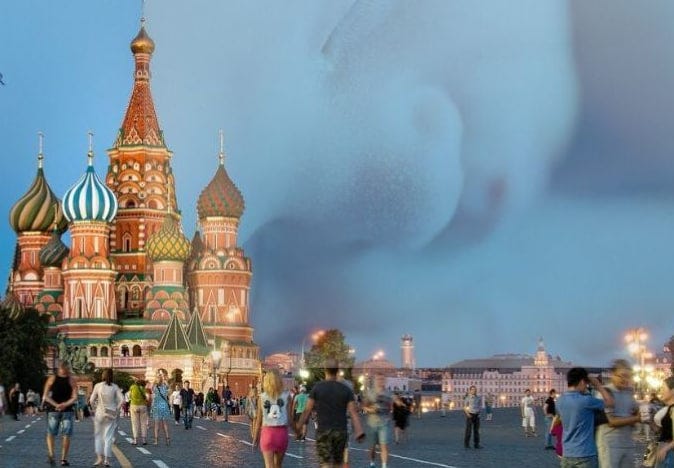
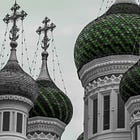
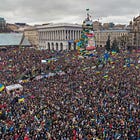
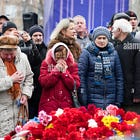

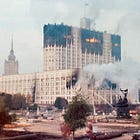
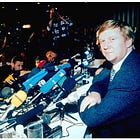

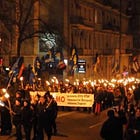
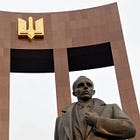


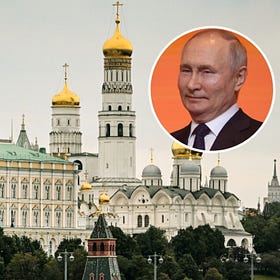
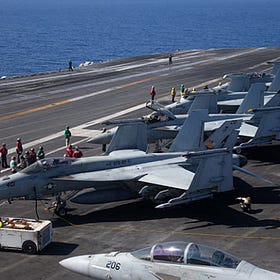
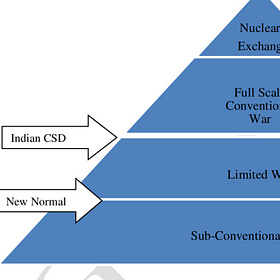
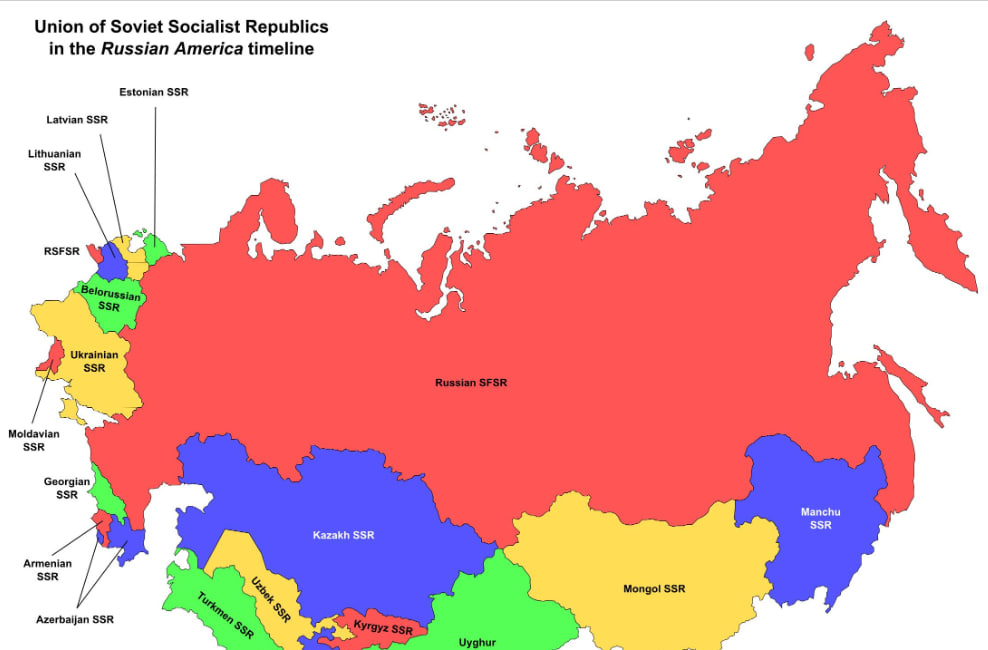









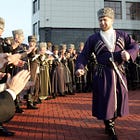
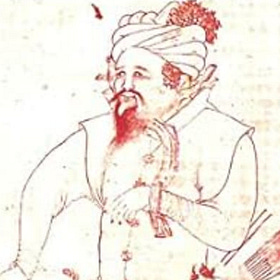
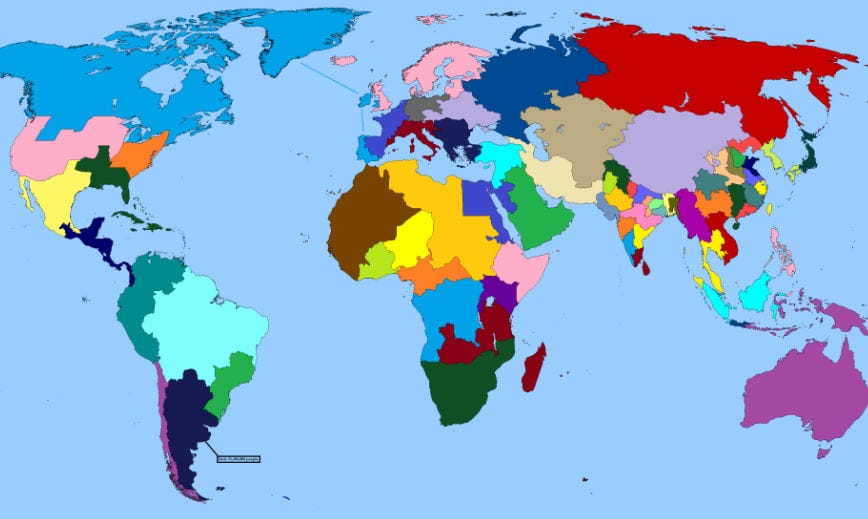




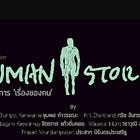


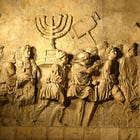


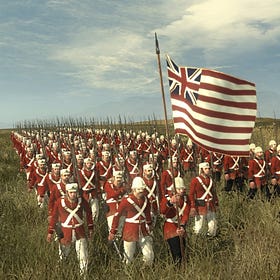

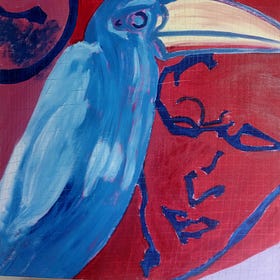


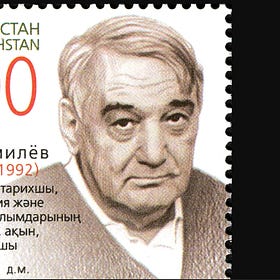
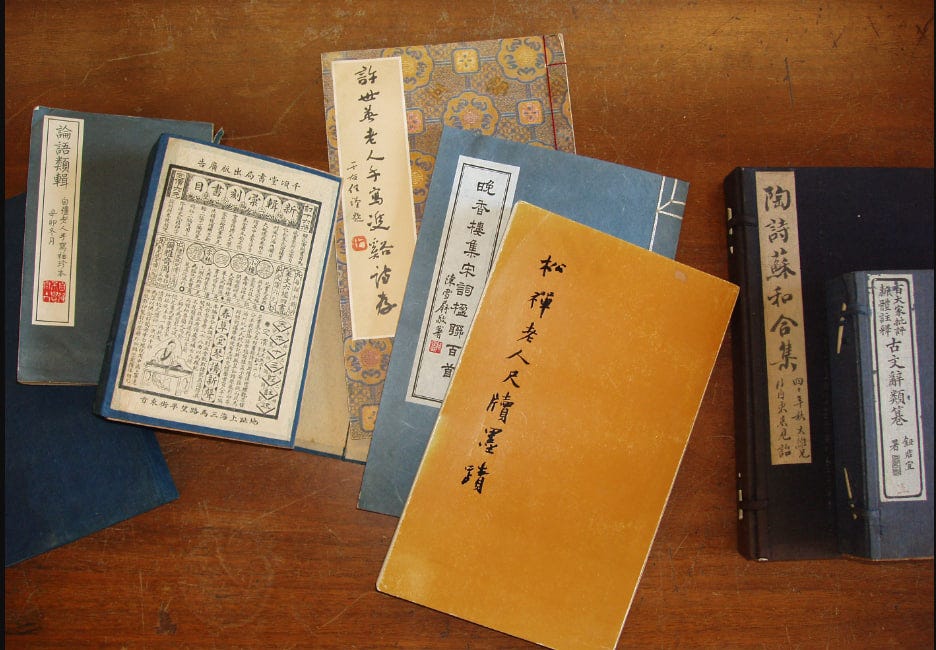

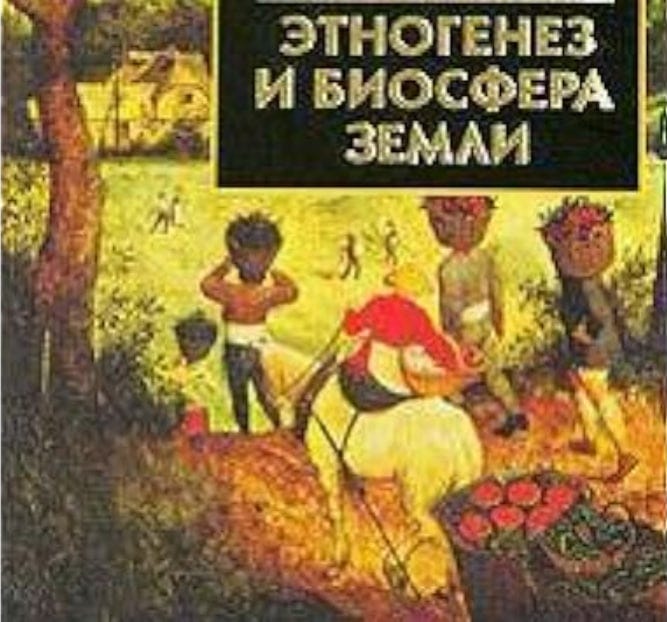


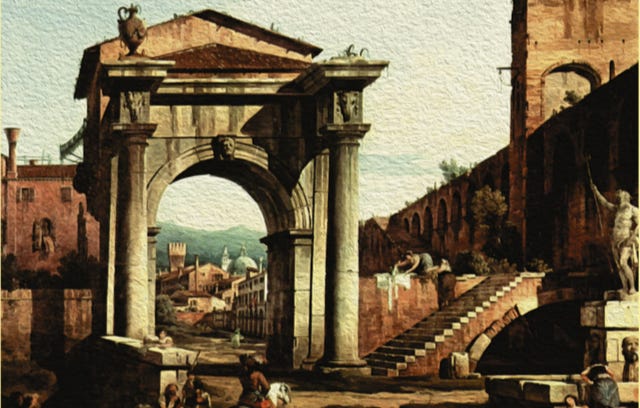

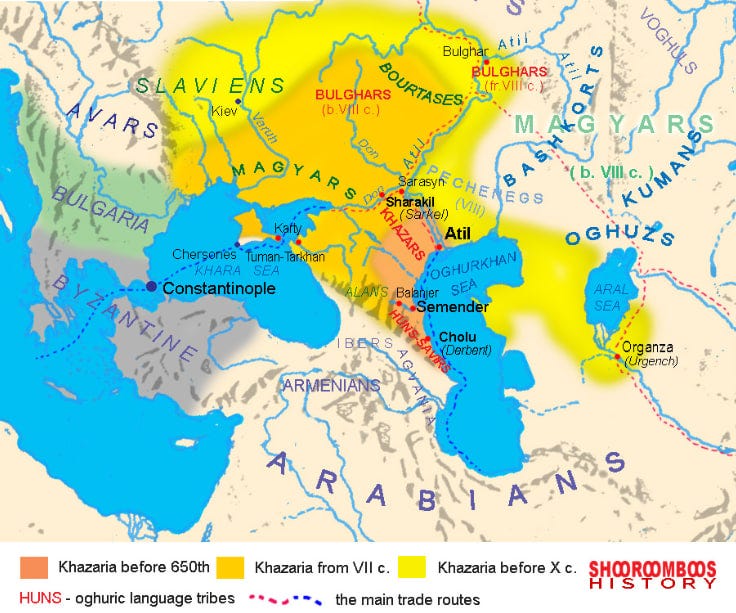





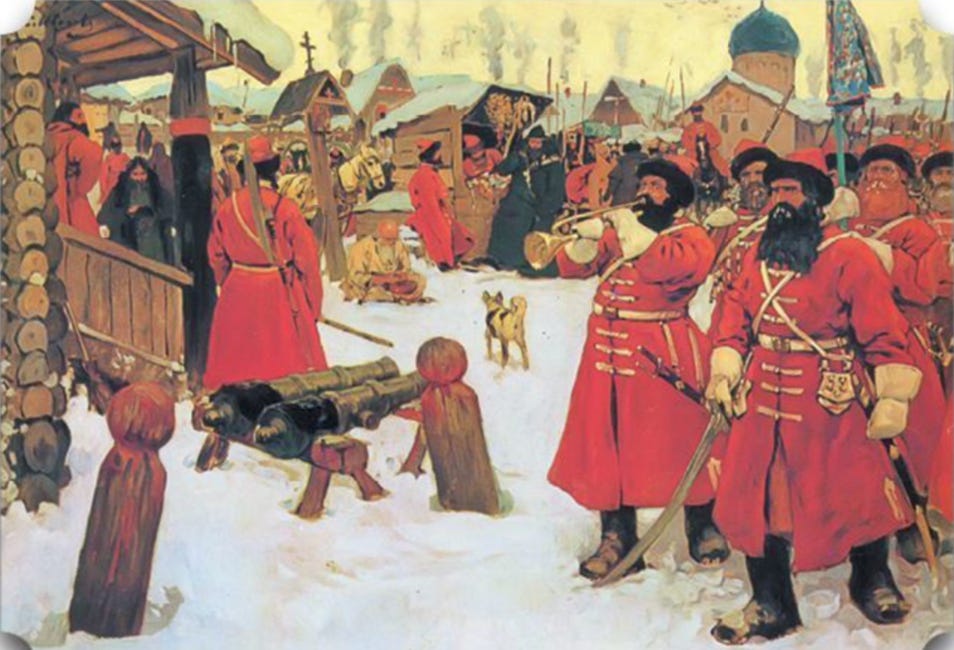
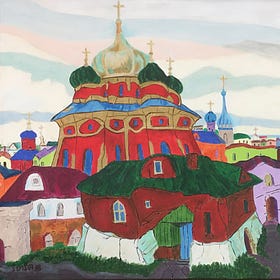
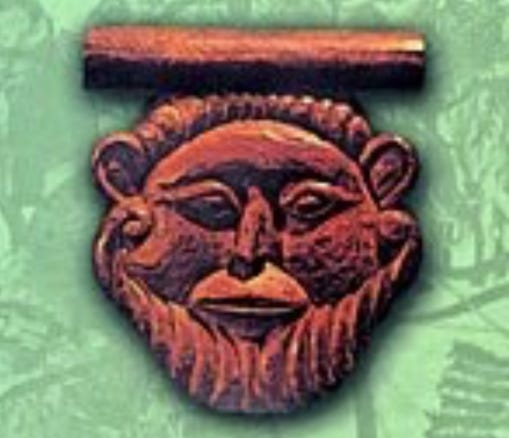



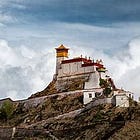



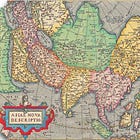
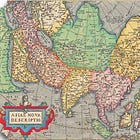



Looks interesting, I will tune in later to get what I hope will be some good reads.
"The Process for Peace and conciliation is UNDERSTANDING".
A non sequitur really for it depends on what intentions are and given the intentions of The West, The Thought Leadership failed to understand just what they were dealing with in their Ukraine Proxy War to take down the Russian State and pillage state resources.
___________
And so . . .
Narrative Collapse.
Only when the last American artillery shell has been fired in The Ukraine, only when the last Ukrainian soldier has been killed in The Ukraine and only when the last of Ukrainian state territory has been irretrievably lost from The Ukraine will The Americans and Europeans finally realize that God Favours Russia . . .
https://les7eb.substack.com/p/washingtons-war-part-viii-narrative